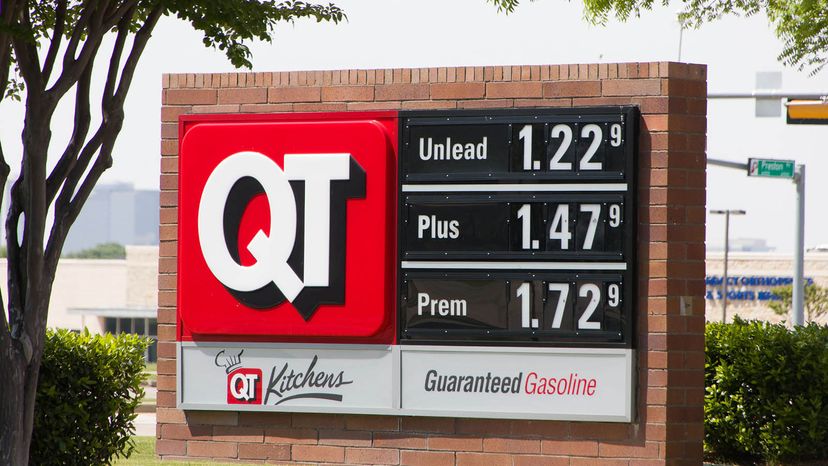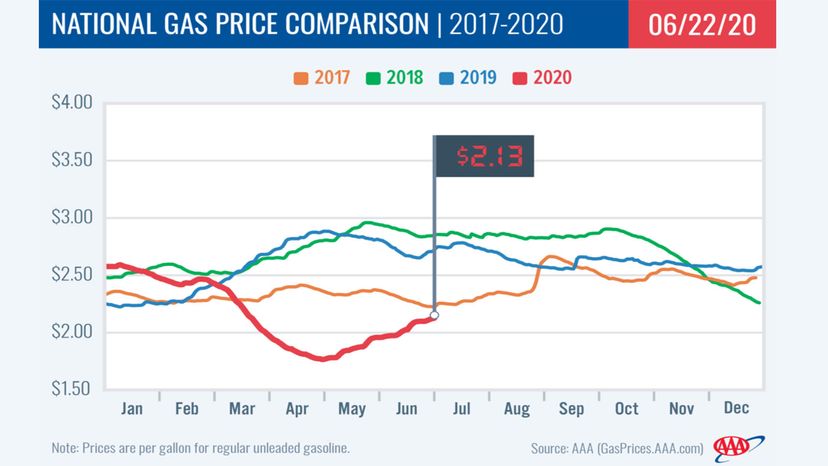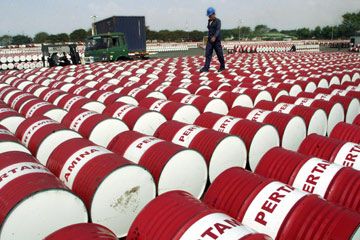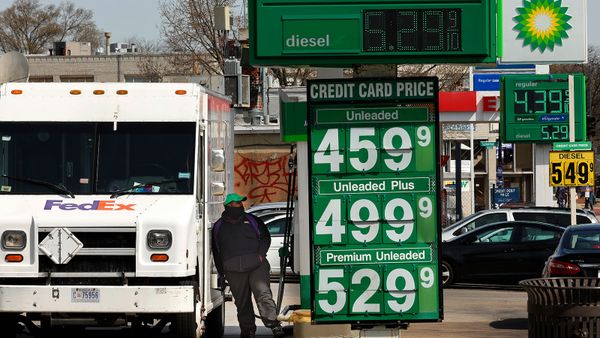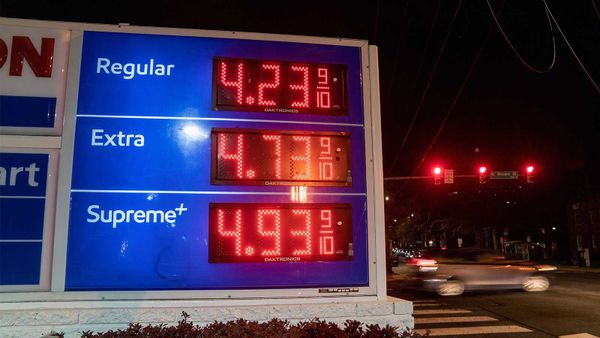When crude oil prices drop so low, we see panicked headlines about the economy, and oftentimes for good reason. But, the recovery can also be nearly as fast as the crash. For instance, after oil production took a hit in the 2014-2016 crash, prices quickly recovered to record highs. The recovery also led to more jobs in energy producing states.
Tom Gara reported for BuzzFeed that Americans bought record-setting numbers of new cars and spent more on holiday shopping after the 2014-2016 oil crash. It wasn't all rosy, as Gara reported, though. The drop in oil prices also slowed the growth of the economy in 2015 and 2016 to its worst since Great Recession.
This time around, though, the results have been a different, because even as consumers have access to cheaper gas, many have also seen their income reduced — or gone entirely.
Gas prices across the United States are already rebounding, however. The national average as of June 22 was 19 cents more than it was in May, but it still is much cheaper — 53 cents — than just a year ago, according to AAA. "Demand levels are likely to ebb and flow in the coming weeks as people continue to be cautious about travel," Casselano says.
"As we saw, prices quickly rebounded and consumers should not expect gas prices to go negative," Gladden says. "However, they do have the potential to go significantly cheaper as oil prices decrease dramatically, too."
When gas prices are high that, too, causes a shift in the economy. If consumers are spending more on gas, they're spending less on other things. If they're trying to cut down on driving because of high gas prices, they'll be more likely to shop online, but discretionary spending will still go down. Furthermore, retailers are often forced to raise prices to offset higher shipping costs, which may discourage discretionary spending even more.
"As we've seen states begin to ease stay at home orders, and we've seen businesses reopen across the country, that has driven up gas demand, and as demand increased, we saw gas prices follow suit," Gladden says. "This trend typically happens during the summer when, under normal conditions, we see more drivers driving. This summer is a bit different, but as we've seen demand increase due to increased economic activity, then we've seen prices at the pump follow suit as well."
